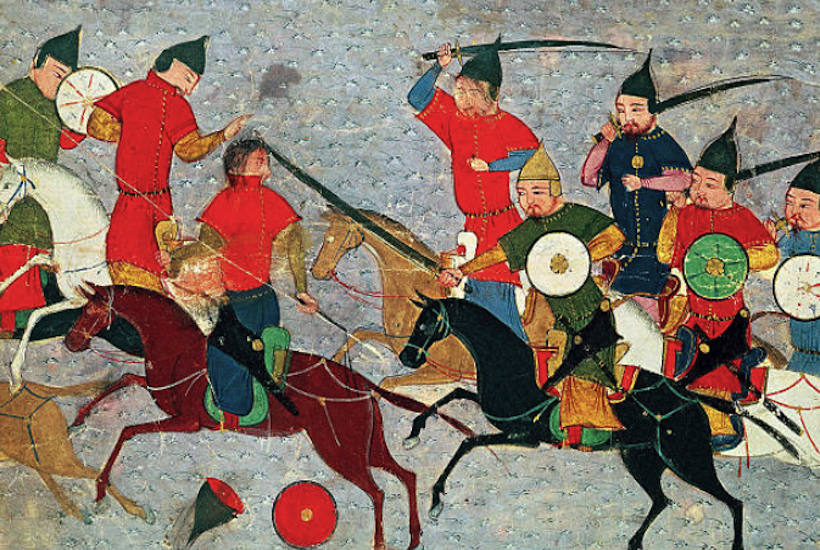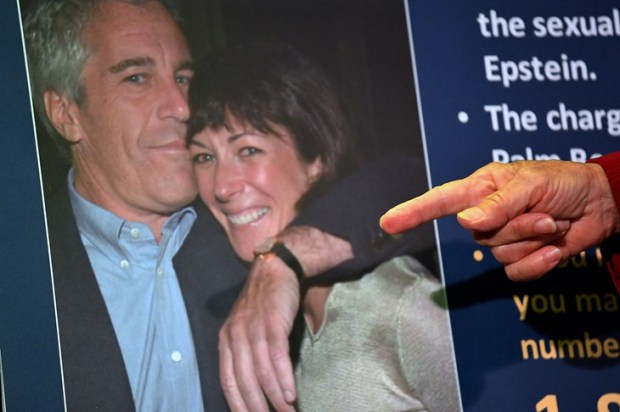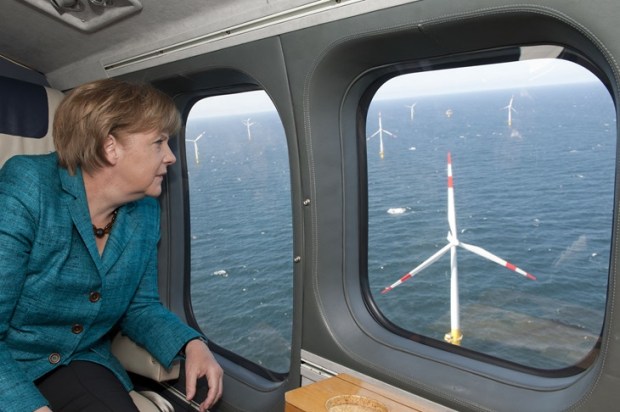I will be honest, I double-checked the date when I saw an article from the Guardian titled, ‘Why Genghis Khan was good for the planet’ trending on Twitter.
April is a tricky month to navigate in the world of post-logic political opinion. It is impossible to tell the difference between satire and the latest Green’s policy shuffling its way onto Matt Kean’s desk.
While the Guardian isn’t known for its humour, it does occasionally post dodgy content such as articles claiming that the Great Reset is nothing but a Sky After Dark conspiracy theory. Keeping this in mind, the subtitle only served to increase my suspicion that this was a belated wind-up leftover from April Fools.
Laying waste to land scrubbed 700m tonnes of carbon dioxide from the atmosphere.
Sure. Pull the other one. Well done, Henley – you had me there for a moment.
After a sip of tea, I realised that we are living in 2021 and the environmental movement is littered with anti-human organisations that worship human extinction as the endgame for planetary health. You know the type – kids pouring buckets of fake blood into storm-water drains, Instagramming the abomination of capitalism on iPhones before their parents come to pick them up a few hours later in shiny Range Rovers.
The Guardian article (which had actually been resurrected from 2011) goes on to brag that the Mongol warrior murder binge scrubbed seven-hundred million tonnes of carbon out of Earth’s atmosphere – although it doesn’t clarify if this figure includes the smoke emitted from the burning of forty million human bodies and their ravaged cities.
The only thing you need to take away from this conversation is that eradicating humans is so green. When humans are removed, the land returns to thick, pristine forests. As geologists everywhere know, deserts did not exist before humans dropped out of the evolutionary tree. It was basically the Biblical Eden.
A bit of Google hunting tracked down the source of Henley’s piece to an article from January 20, 2011 titled, ‘War, Plague No Match for Deforestation in Driving CO2 Buildup’ published by Carnegie Science.
In it, lead author Julia Pongratz from the Carnegie Institution’s Department of Global Ecology argues that humans began impacting the Earth’s climate by changing the cover of vegetation with the rise of agriculture. The follow up is straight forward. When humans were slaughtered by Khan, nature was free to reclaim the terrain producing a measurable win for those consumed by Carbon fear porn.
Of course, the planet is not a harmonious entity that humans wandered into and destroyed.
Deforestation is something Earth has been pretty good at on its own with the catastrophic movement of plate tectonics re-shaping both landscapes and weather systems. We can add to this frequent apocalyptic natural disasters, and the evolution of various life forms. If you think humans are bad, you should travel back a few billion years and meet the pesky oxygen-producing cyanobacteria whose evolutionary quirk flooded the atmosphere with a gas no one was willing to breathe. As a result, Earth nearly died as a giant snowball.
Pongratz’s ‘Mongol slaughtering is good for the planet’ article was written for The Department of Global Ecology, established in 2002 to ‘help build the scientific foundations for a sustainable future’ and is funded by the Carnegie Institution. More interestingly, Julie Pongratz is also listed in the Department of Geography for the Global Carbon Project.
Like all bureaucracies, these environmental movements operate like the undocumented children of unmarried first cousins living in a taxpayer-funded orphanage. They all seem to be connected through partnerships and people, referencing each other in an incestuous mess.
According to their website, the Global Carbon Project is ‘a Global Research Project of Future Earth and research partner of the World Climate Research Programme’ created to ‘establish a common and mutually agreed knowledge base to support policy debate and action’. Which doesn’t sound like it meets the rigorous environment of thriving scientific debate that we expect from world-changing dialogue.
In case you were wondering, their ‘Carbon Strategy’ is essentially a global tax document forced onto nations via treaty rather than election. The general point is to measure Carbon globally so that it can be monetised – although something tells me China will find a way to wriggle out of the bill by crying ‘Third World’.
Future Earth, its parent structure, lists its partners as the United Nations and the IPCC. This is the kind of organisation that uses phrases like, ‘transformations towards societies that provide good and fair lives for all within a stable and resilient Earth system’. If you think that sounds a little Commie – you’re right. Only a couple of weeks ago, their Twitter account linked to an article entitled, ‘Identifying a Safe and Just Corridor for People and the Planet’ – which provides a really scary glimpse at our future if left in the hands of eco-collectivists with too much public money at their disposal.
Finally, if you have survived this long, you can read the ‘About us’ page for the World Climate Research Programme rambling off the usual suspect list of confidantes and lovers – at which point you start to realise that the ‘consensus’ of climate change is really only one organisation operating under a thousand different banners muttering the same thing in slightly different accents.
How many of these organisations has Australia signed itself up to? Who knows. I doubt anyone is keeping track of the sheer weight of green tape strangling our nation.
What I do know is that the Guardian was hardly the only publication to pick up on the Green Genghis clickbait.
On the same day that Pongratz’s study was published in 2011, Mongabay ran a piece titled, ‘How Genghis Khan cooled the planet’ and a month after that, the World Wildlife Fund followed with, ‘Genghis Khan – the greenest invader in history’.
At best, Henley was just another media invite to the warlord party.
There is one disturbing observation to add which the Guardian missed. The original scientific publication examined the climate benefits of other human catastrophes, including the Black Death. Underneath its discussions about agriculture, it was flirting with the connection between human die-outs and environmental benefit. Since it went to print, the world has had to deal with China’s little surprise present of Covid19.
A few of these global organisations jumped the gun when tweeting about how great the death of and imprisonment of entire nations was for the environment in terms of Carbon emissions. A year later, it has become standard to find Covid19 woven all the way through climate change policy as if a bit of a cough is now a valid excuse to install global eco-tyranny. The promises of Pongratz’s paper are looking less and less like fiction.
The United Nations sustainable development and climate change section lists in their official Covid19 response:
The current crisis is an opportunity for a profound, systemic shift to a more sustainable economy […] making societies and people more resilient through a transition that is fair to all and leaves no one behind […] Governments around the world have spent considerable time and effort in recent years to develop plans to chart a safer and more sustainable future for their citizens. Taking these on board now as part of recovery planning can help the world build back better from the current crisis.
The bold text links to an article from the World Bank blog encouraging governments to engage in massive market interventions across fundamental sections of their economies which not only are a dangerous step toward Communist systems, but also are unaffordable. Don’t worry, the World Bank is on hand with international green loans and grants which definitely won’t burst into an unholy mess of debt at a later date.
All I have to say is forget Genghis Khan.
That horny Mongol was an amateur when it came to global domination compared to what the climate change mob have in mind.
Alexandra Marshall is an independent writer. If you would like to support her work, shout her a coffee over at Ko-Fi.
Got something to add? Join the discussion and comment below.
Get 10 issues for just $10
Subscribe to The Spectator Australia today for the next 10 magazine issues, plus full online access, for just $10.

























Comments
Don't miss out
Join the conversation with other Spectator Australia readers. Subscribe to leave a comment.
SUBSCRIBEAlready a subscriber? Log in